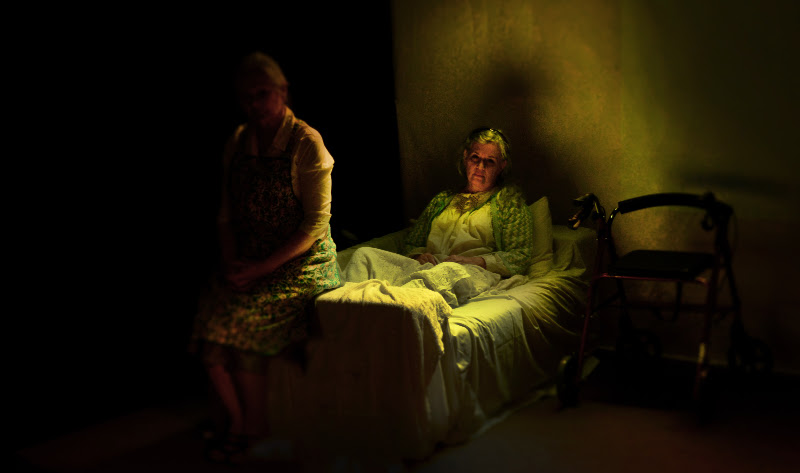Mercy by Clare Whitehead
A brisk walk through London’s Theatreland will convince anyone seeking a novel theatrical experience that outlets for new, fresh writing are thin on the ground. Some theatres even trumpet a virtue of the fact that their play has been running forever, or is making a triumphant return. This reviewer has always taken comfort in the belief that any decline in the overall quality television output would drive content seekers back to the theatre. Shaw somewhere in one of his Prefaces urged theatrical managements to give regular stage-time to new writing – one in four I think was his formula. The reality however is that producers – and who can blame them? – are not likely to wring the neck of a goose that is laying golden eggs. New writing must find its own way in the world.
Entering into the fray is the So and So Arts Club, previously detailed in these pages as having recently set up shop just off Old Jewry in Cheapside. Their Ever Hopeful repertory season kicks off this week with a clutch of four new plays by established or rising playwrights. Last night’s was a co-production with Frontier Productions, the company founded by James Roose-Evans of everlasting, Hampstead Theatre fame.
Funerals or at least their immediate aftermath can often be a time of reflection on past and passing lives. Notoriously this can also be a time of regrets for things done or not done, said or not said. So in Clare Whitehead’s cri de cœur for a wasted life, Helen, the recently widowed wife of Tony, is given a mental slap into the realm of might-have-been by the appearance at the graveside of Dave, the love of her life.
Virginia Stride’s Helen is a bundle of raw nerves and emotions as she contemplates the missed opportunities, as she admits, ‘It’s a horrible thing, regret’. The problem is, or was, that Dave was a shit of the first water, having dumped a pregnant Helen in order to chase the money. Jack Klaff’s slightly oafish, ‘give us a second chance’, Dave, is a model of ill-timed insensitivity as he crashes the graveside and digs up old wounds.
The tragedy of the piece is in Helen’s ending up with the good man rather than the right man. But it is no less applicable to the dead Tony (Steve Hay) whose unconditional love for Helen was never reciprocated; indeed she finally admits she let it slip.
Some kind of resolution seemed on the cards with her recognition, ‘I don’t think I ever got going in the first place’, but the play doesn’t look forward and new starts are not what this play is about.
This short, delicate and sensitively acted, interior play is perfectly suited to the congenial atmosphere of the So and So’s premises in Fredericks Place and is a welcome piece of new writing for an often neglected part of society. Graham Wyles 3/09/15



